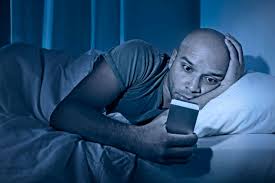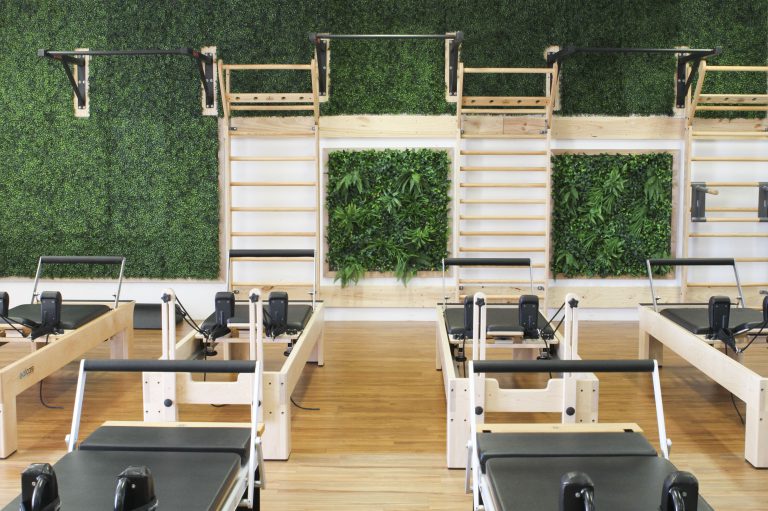How is your sleep Hygiene?
Sleeping.. it’s simple right? You get out of bed in the morning, stay active for around 16 hours, for some maybe more or a little less, then go back to bed and fall asleep. Simple.
If a child has issues sleeping we tell them to count sheep, offer a glass of warm milk or set their room to a milder temperature. These techniques can help to calm their mind and allow sleep to come more naturally.
But what does an adult do when sleep is hard to come by? What should we do when sleep is hard to find? Sleep can be especially difficult for those affected by mental illness, side-effects of medications, stress, trauma or as a symptom of an illness/ dysfunction and even pain.
There is no universal solution for getting a good night’s sleep but if you’re having trouble getting in the Zzz’s and feeling refreshed and rested in the morning, it may be a good time to check up on your sleep hygiene.
What is sleep hygiene?
The term “hygiene” is often misunderstood as strictly being synonymous with “cleanliness.” The true meaning of hygiene has to do with sets of practices, habits, and environmental influences that impact one’s health. Hygiene of all kinds are important to your health and well-being as most are aimed at reducing your chances of coming into contact with diseases, getting infections, spreading germs and viruses, or preventing oral cavities and gingivitis.
If all of these other types of hygienic practices are aimed at preserving your health, exactly what is sleep hygiene and how can it help you in your everyday life?
Why is sleep so important?
Getting a full night’s sleep every night is important to people’s overall health and happiness. Most of us are aware that when we lose a few hours of sleep, we are often tired and cranky the next day and have difficulty concentrating, staying alert, and being in a positive mood. And all of these things can occur after just one day of lost sleep.
If you’re regularly losing sleep, you’re putting yourself at risk to a whole slew of health issues and medical conditions including
- heart disease
- heart attacks
- stroke
- diabetes
- obesity
- cognitive impairment
- memory loss
- chronic stress
- heart arrhythmia
- increased likelihood of accidents
- depression
- mood disorders
It’s mind blowing to think that all of these problems can occur simply from losing a few hours of sleep a night. In today’s 24/7 world where our time is in high demand, many people feel that their sleep comes second to societal needs. With our professional, social, academic, and family lives requiring so much of our time, it’s no wonder that so many people experience sleep deprivation.

How to practice good sleep hygiene?
Many people may realise the impact that poor sleep quality is having on their daily lives, but may be unsure of what types of activities are contributing to their sleep loss, or simple practices they could be doing to ensure they get not only more sleep, but better sleep.
Many people believe that because they slept between the 7-9 hours of recommended nightly sleep, that they’re doing things right. However, while getting enough hours of sleep is very important, getting quality sleep is more important. If you’re doing things that are disruptive to your sleep, your body and mind are not truly resting enough to repair and prepare themselves for the next day.
Getting (or not getting) great sleep every night is often due to two important factors: your personal habits and your sleeping environment. The things you do during the day and leading up to sleeping at night can impact your sleep just as much as the environment you choose to sleep in. Optimizing both your personal habits and your sleep environment is paramount to successful sleep
Personal Habits
- Establish a regular bedtime routine.Train your body to sleep by going to bed and getting up at the same time every-day, even on weekends. You can develop your own sleep rituals such as stretches, breathing exercises, meditation or sitting calmly with a cup of caffeine free tea.
- Exercise regularly. Regular exercise is good for both your physical and mental health, it is also great when it comes to sleep. Burning energy throughout the day can help to ensure you don’t feel restless in the evening. Try not to do strenuous exercise within 4 hours prior to bedtime as this may also cause overstimulation and have the opposite effect.
- Don’t eat too close to bedtime.Eating too close to bedtime can disrupt your sleep, mostly because it gets your stomach acids going, and lying down can cause those acids to creep up into your throat. If you’re really craving a late-night snack, try a bowl of cereal with milk or cheese and crackers. These types of foods are rich in minerals, such as tryptophan and calcium, which help promote sleep.
- Avoid caffeine and nicotine close to bedtime.Caffeine and nicotine are stimulants that, when taken within 3 hours of bedtime, can make it difficult to go to sleep or stay asleep until the chemicals wear off. Many people may recognize that drinks such as soda, tea, and coffee contain caffeine, but may not realize that foods such as chocolate also contain caffeine.
- Avoid alcohol before bedtime.Many people falsely believe that alcohol helps promote sleep as it makes them drowsy and more likely to fall asleep quicker. However, once your body begins to metabolize the alcohol there is a period of arousal, which disturbs one’s sleep.
- Get light when possible.Your circadian rhythm, the internal clock that regulates periods of sleep and wakefulness, is triggered by light and darkness. Getting ample amounts of natural light during the day and less light at night helps keep your circadian rhythm in harmony with the external world.
- Naps. Avoid naps during the day to ensure you are tired by bedtime. If you can’t make it through the day, ensure your nap is for less than an hour and before 3pm.
- No clock watching.It’s natural, but try not to watch the clock Checking the time wakes you up and reinforces negative thoughts such as “oh no it’s so late, I’ll never get to sleep”
- Use a sleep app or diary. This is a valuable way to track your sleep patterns. Depending on the cause of your inability to sleep, a GP or Therapist can utilise this information to get a better understanding of what is happening, or they can refer on to a sleep specialist for further assessment. There are fantastic apps available which facilitate sleep including methods such as guided relaxation, white noise and vibration.
Sleep Environment
- Associate your bedroom with sleep and sex only.These are really the only activities that your bedroom should be designed for. Doing any other activities in your bedroom can cause your mind to associate it with other stimulating endeavors. Don’t watch TV, listen to the radio, or talk with your partner about important life occurrences or problems in bed. Bringing stimulating content or conversation to bed can keep you awake engaging in it or worrying about it.
- Keep electronics out of the room.All electronic devices including TV’s, tablets,
 laptops, mobile phones, portable gaming systems, and e-readers should be ditched before bedtime. For starters, the content may be stimulating and keeping you awake as you play “just one more game” or read “just one more post.” Furthermore, the light emitting from these devices is similar in wave-length to daylight and can trick your circadian rhythm into believing it is daylight and delay the release of melatonin, a hormone that promotes sleep
laptops, mobile phones, portable gaming systems, and e-readers should be ditched before bedtime. For starters, the content may be stimulating and keeping you awake as you play “just one more game” or read “just one more post.” Furthermore, the light emitting from these devices is similar in wave-length to daylight and can trick your circadian rhythm into believing it is daylight and delay the release of melatonin, a hormone that promotes sleep - Keep your room dark.Light is bad for sleep as it can disrupt your circadian rhythm. Keep your room dark by using heavy window shades, wearing a sleep mask, and avoiding staring at glowing electronics.
- Keep your room quiet.Noise can keep you awake so make sure your room is as free of unnecessary sounds as possible. If you’re still having trouble sleeping because of noisy neighbours or others in the house consider using earplugs to block out sound or try “white noise.” Fans and sound machines that make continuous rhythmic sounds can be both relaxing and aid in drowning out distracting or sudden noises.
- Keep your room cool.As you go to sleep your body temperature begins to drop as it prepares itself for slumber. Keeping your room a cool temperature can help aid the process of cooling your body.
- Make your bed as comfy as possible.Most mattresses are good for about 9 years. If your mattress is out of date or uncomfortable, getting a new mattress can go a long way towards great sleep. Having an uncomfortable pillow or bedding can keep you from sleep as well. If you’re constantly readjusting your pillow before bedtime, it may be time to get a new one.
- Set your alarm and keep it away from your bed.Too often people get used to using their phone as their wake-up device. Having your phone close to your bed makes it too easy to continuously check it for new texts, emails, or just looking at the time. Constantly reminding yourself of the time can create anxiety, making sleep more difficult. Also, keeping your alarm away from your bed reduces the chances of hitting the snooze button over and over, and it makes you get up out of bed to shut it off.
By following these best sleep hygiene practices on a nightly basis, you’re almost guaranteed to get more fulfilling sleep at night and be more awake and alert during the day.
Danielle Guy
Occupational Therapist


